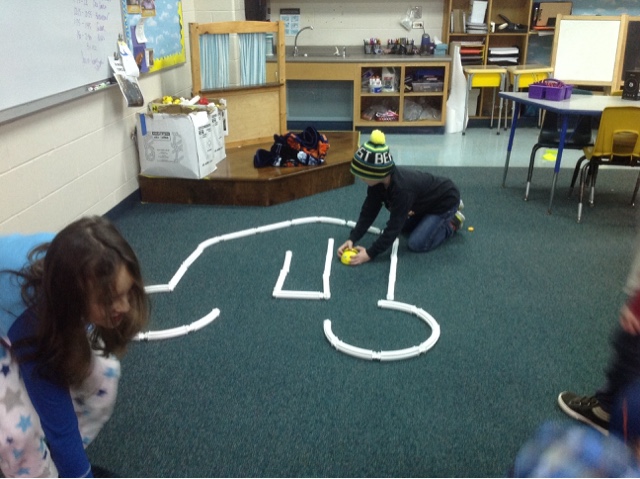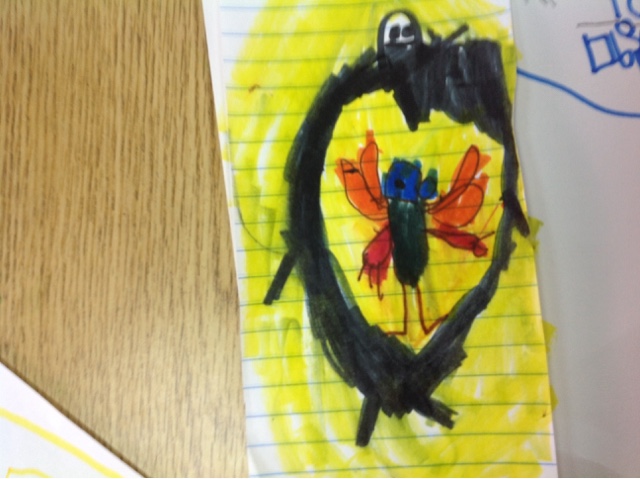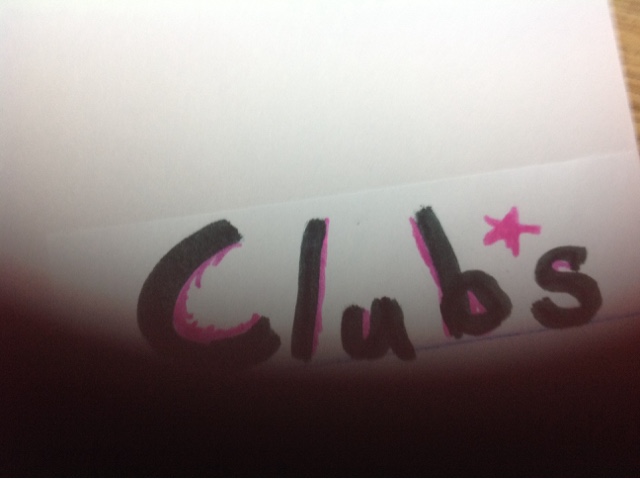Often my enrichment blog posts are letting people know about upcoming awesome events, or to highlight amazing student work that is going on in our classroom at all the different grade levels. Occasionally though I use this blog to share some of my reflections on education as a professional that is striving to support students each day.
For the last several months the news, especially the educational news, has had many articles about the realization that in the constant deluge of media that surrounds all of us...some information, and sometimes quite a bit of information is 'FAKE'. Educators around the country are asking how they can help students to be prepared for this world of media where sources are not verified, random tweets can go viral with no basis of truth , where fact checking is not a mandatory part of published work (after all anyone --even I-- can publish a blog!!). They are worried that if adults are falling victim to false media...what does this mean for our children and students?
These are important questions, and for several weeks I have been reflecting on how this impacts my students and myself as an elementary educator. It is important to me that my educational practice is not only meeting the prescribed 'have tos' of our district, or state, but that we are supporting students in being world and digital citizens and that we are thinking about these big questions. Some people may think that perhaps this topic is not really one for elementary education----after all students can learn about media bias in middle or high school when they are actually using those tools--right? In a recent discussion with a fellow educator she posed a great question to me: Are these questions really the questions about FAKE news developmentally appropriate for elementary students? Is this something that our students are going to come across in their learning and be able to make concrete connections to?
I believe that they are important, AND that we need to look at them through a developmentally appropriate lens. We need to think carefully about what foundational skills students need to be media literate in this fast paced 'information overload' society. We need to accept that our students even at ages 6 and up are exposed to social media (some through looking at older family member accounts, some through their own accounts despite best effort age restrictions, and MANY through word of mouth). We need to accept that students are participating in their own forms of social media through texting. I have been having discussions for four years with nine and ten year olds about internet safety. In that short time the number of students exposed to or connected to someone exposed to online forums (games, chat rooms, social media) has gone from a handful to about %85. Children are digital natives--technology is prolific and our acceptance of this needs to come with thoughtful educational practices that support their navigation of this awesome, amazing and sometimes FAKE new source of information.
"Media literacy experts stress that children should begin acquiring these
questioning skills long before they are old enough to use social media.
Even in the early years, they can begin to question the messages in
signs and TV commercials."
In an article on Common Sense Media (an amazing website I utilize as an educator and a parent frequently) they warn:
"If you get your news online or from social media, this type of headline
sounds very familiar. What's real? What's fake? What's satire? Now that
anyone with access to a phone or computer can publish information
online, it's getting harder to tell. But as more people go to Facebook, Snapchat, Twitter
and other online sources for their news and information, it's even more
crucial that all of us -- especially kids -- learn to decode what we
read online"
( See full article here:
https://www.commonsensemedia.org/blog/how-to-spot-fake-news-and-teach-kids-to-be-media-savvy Author: Sarah Filucci, Downloaded on 1/3/2017).
So...what can we do to build critical thinking skills, to help our kids decode media? Here are some of my ideas:
--Use developmentally appropriate context to show students that not all media is true
----In younger grades this, as Jacobson suggests in her article, is as simple as pointing out that some stories are true and some are not (fiction versus nonfiction)
----In second grade enrichment we learn to blog and blog comment. As we explore this medium we learn that anyone can write anything online and that we have a responsibility to ourselves and others for our content as we share with our school and family community.
----In our fourth grade library enrichment class we expose students to brand association (they are amazed how many candies they can identify just with a single letter!), share commercials and the preparation of commercials (did you know that there are 'food artists'?), think about how toys are advertised and then how they actually are in real life applications, teach students advertising strategies and watch them search these out in magazines, posters, books, and videos. We also share some fake internet websites and provide tools for students to question the validity of their resources. (Check out:
http://zapatopi.net/treeoctopus/).
----Persuasive essays are part of all grades K-4 writing requirements---but how far can we go to persuade someone? Can we modify the truth? Perhaps students should have time to play with this idea!
--Give students opportunities to CREATE media as well as to consume it
----Through creation of media I believe that students gain a direct understanding of what they are consuming. It allows them to more quickly understand the connection between author, media message and purpose. As students in fourth grade create book trailers to advertise a favorite book they are challenged to use at least two advertising strategies....and suddenly they are analyzing their own work and have more agency to analyze the work of others! When a second grader shares something through blogging and receives comments from someone in Florida, they witness how a message travels online.
--Provide students with strong role models
----I believe that we have to be critical thinkers and creators of media in order to model digital citizenship. If students see us as a person they can rely on to help them digest and evaluate media then as educators we can support their learning journey more successfully.
--Develop stronger community conversations around media literacy
----This is one I have not quite figured out how to do yet in my role. I think it would be great to build a community conversation about how we can help students to be critical consumers of media not just for school projects but ALL of the time.
Here are a few resources that I really appreciate about media literacy (this is not exhaustive and not intended to be exclusionary):
https://www.commonsensemedia.org/
http://mediasmarts.ca/media-literacy-101
http://www.medialit.org/
Do you feel media literacy is an important part of elementary education? What can I do as the enrichment teacher to further support this work? What changes are you seeing around media creation and consumption--do you have questions, concerns, excitement? I would love to hear from you!











